When I was certified as an Open Water Diver some 12 years ago, I couldn't be more elated. Finally I had unlimited access to the realm that was so far only reserved to my heroes like Jacques Cousteau or Hans and Lotte Hass (oh my am I dating myself here…). I would be able to playfully frolic in the depths with sharks, turtles and dolphins and video journal every step of it. Or so I thought.
Hans and Lotte Hass while shooting a film for the BBC in 1951.
I was over-confident in my newly attained skills until I went diving with my husband, back then an instructor of 15 years, and he and the dive crew of the boat in Florida said to me: "You need to sit out this first dive. You're not certified for advanced dives". After the awkward silence by my husband that followed my flaming-dagger throwing looks at him, I sat out the dive and vowed to get my Advanced Certification with flying flags in no time. I never wanted to be left out of the fun again. And boy, after all this time, I am glad I did, because I would have never experienced the dives that I have done since.
There are many reasons why you should get the advanced certification. The professional organizations have their own lists, but here are my top four:
There are many reasons why you should get the advanced certification. The professional organizations have their own lists, but here are my top four:
1. Explore Wrecks and encounter amazing creatures
If you are not advanced certified you cannot do certain wreck dives. Sure, you can explore a wooden structure that might resemble a boat in 30 to 60 feet that went down in a small storm, but the most interesting wrecks will be a tad bit deeper. I don't particular like deep diving and I truly believe that the call to do deeper in some divers is driven by a machismo attitude, but I want to be comfortable diving to depths of around 80-120ft. And while you might be able to hang on to the top structure of a wreck in 60 feet, it will most likely sit in 70-80 ft of water. And there is so much great stuff down there.
On our last trip to Florida we explored the Spiegel Grove with a group of friends. This was the same wreck I had to sit out years ago. We got down to the command tower at 50 feet with heavy currents and my warm calm water loving diver self went: "great... here we go!". However, being advanced certified and having used the knowledge from that course in my dives since, I was prepared this time. We hung out there for a few moments until everyone had descended to that meeting point and then we started following our local dive guide through this awe-inspiring structure. After a few minutes of going through the command deck of the ship, our guide led us out through a smaller opening on the side. I was third in line to come out avoiding the minor 'traffic jam' behind me. Once outside everyone was waiting for the rest of the group. There was absolutely no current and we just hung in mid-space enjoying buoyancy. When all seven of us were out, we wanted to make our way back when all of a sudden the “wall” that had been on our right started moving ever so slightly. We quickly fin-kicked a couple of feet away, turned around and dropped our jaws. A giant 600-something-pound grouper the size of a train engine was sitting right there, waiting his turn for all the tourists to swim by. When we took out the cameras they were not able to get it all in one frame. And then, with one fin-kick, just like our kick took us two feet away, it was gone. We were later told that that was the local giant grouper who called the Spiegel Grove home ever since it relocated there rom Key West.
On our last trip to Florida we explored the Spiegel Grove with a group of friends. This was the same wreck I had to sit out years ago. We got down to the command tower at 50 feet with heavy currents and my warm calm water loving diver self went: "great... here we go!". However, being advanced certified and having used the knowledge from that course in my dives since, I was prepared this time. We hung out there for a few moments until everyone had descended to that meeting point and then we started following our local dive guide through this awe-inspiring structure. After a few minutes of going through the command deck of the ship, our guide led us out through a smaller opening on the side. I was third in line to come out avoiding the minor 'traffic jam' behind me. Once outside everyone was waiting for the rest of the group. There was absolutely no current and we just hung in mid-space enjoying buoyancy. When all seven of us were out, we wanted to make our way back when all of a sudden the “wall” that had been on our right started moving ever so slightly. We quickly fin-kicked a couple of feet away, turned around and dropped our jaws. A giant 600-something-pound grouper the size of a train engine was sitting right there, waiting his turn for all the tourists to swim by. When we took out the cameras they were not able to get it all in one frame. And then, with one fin-kick, just like our kick took us two feet away, it was gone. We were later told that that was the local giant grouper who called the Spiegel Grove home ever since it relocated there rom Key West.
2. Know where you are in the Time-Space Continuum
Let's face it. In your Open Water Class you focussed on mask clearing, weight belt and other things removal, staying down and generally not freaking out about this cool new thing called breathing underwater.
If you keep on diving as an open water diver and accumulate an impressive number of dives, are you really comfortable when it comes to a situation where your life depends on finding your way back to the boat?
On one of my first 50 dives I stayed back a little from the group to take pictures of a particularly beautiful reef formation. I was blissfully unaware that the group was out of sight and also that my husband and dive buddy had stayed with me. After a while he looked at me and in his least offensive instructor mode asked me to find my way back to the boat. Needless to say I wasn't able to. I made it a priority after that incident to always keep a compass with me and know my surroundings and whereabouts.
If you keep on diving as an open water diver and accumulate an impressive number of dives, are you really comfortable when it comes to a situation where your life depends on finding your way back to the boat?
On one of my first 50 dives I stayed back a little from the group to take pictures of a particularly beautiful reef formation. I was blissfully unaware that the group was out of sight and also that my husband and dive buddy had stayed with me. After a while he looked at me and in his least offensive instructor mode asked me to find my way back to the boat. Needless to say I wasn't able to. I made it a priority after that incident to always keep a compass with me and know my surroundings and whereabouts.
3. Take better underwater footage
Pictures courtesy of rjohannes
The days that underwater photography and videography was only done by professionals are long long gone. Just like with any electronics, the prices for great underwater cameras for the layman came down so much that it is quite affordable to get a full setup. But if you are not comfortable to use additional gear in the water you will always come up with pictures all of us have hundreds of on our SD cards. Those we want to ‘go through to see what’s usable’, but if we were honest they could all be chucked because they are too blue, too green, too out of focus, or the ones we hold on too, because someone exhaled and all the bubble mask the one shark we saw on a trip and we magically think it will appear over time.
The pictures above were taken by one of our friends who started diving five years ago and slowly advanced his skills. I am not going to lie to you, he has a nice setup, but the pictures were only possible because he took the step to advance himself. He dove on a regular basis and took an advanced course. His photo gear is like a second set of limbs to him, because he is extremely comfortable in the skills he attained.
The pictures above were taken by one of our friends who started diving five years ago and slowly advanced his skills. I am not going to lie to you, he has a nice setup, but the pictures were only possible because he took the step to advance himself. He dove on a regular basis and took an advanced course. His photo gear is like a second set of limbs to him, because he is extremely comfortable in the skills he attained.
4. Improve your buoyancy and trim
Diving is about having fun, being responsible with your own life, your buddys' life and most importantly marine life.
I have been on many a dive where divers that bragged on the boat about their twenty years of diving experience just crashed down and came to a halt on the sand or the coral. Not cool. Getting more dives under your belt surely helps, but, in an advanced course you are being given the tools on how to improve your buoyancy and trim. The end result is pretty obvious: better buoyancy and trim lead to better air consumption leads to a saver, maybe even longer dive, which in the end leads to more fun.
And let’s face it. Wouldn’t it be cool if we all could be that diver that had the perfect buoyancy, not even stirring the fan corral while hovering two inches over it?
I’m often asked by new divers what the one thing is that they should have, the most important necessity or cool gadget. My answer is always the same: “Gadgets cannot make you a better diver. Experience and getting in the water can. And once you have some dives under your belt, do yourself a favor and get an advanced certification. It will improve your diving and lead to collecting even more amazing life moments when immersing yourself in the vastness of magnificent wonder we call oceans.
I have been on many a dive where divers that bragged on the boat about their twenty years of diving experience just crashed down and came to a halt on the sand or the coral. Not cool. Getting more dives under your belt surely helps, but, in an advanced course you are being given the tools on how to improve your buoyancy and trim. The end result is pretty obvious: better buoyancy and trim lead to better air consumption leads to a saver, maybe even longer dive, which in the end leads to more fun.
And let’s face it. Wouldn’t it be cool if we all could be that diver that had the perfect buoyancy, not even stirring the fan corral while hovering two inches over it?
I’m often asked by new divers what the one thing is that they should have, the most important necessity or cool gadget. My answer is always the same: “Gadgets cannot make you a better diver. Experience and getting in the water can. And once you have some dives under your belt, do yourself a favor and get an advanced certification. It will improve your diving and lead to collecting even more amazing life moments when immersing yourself in the vastness of magnificent wonder we call oceans.
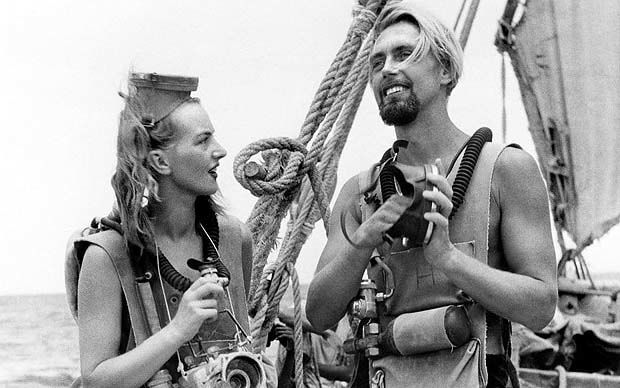
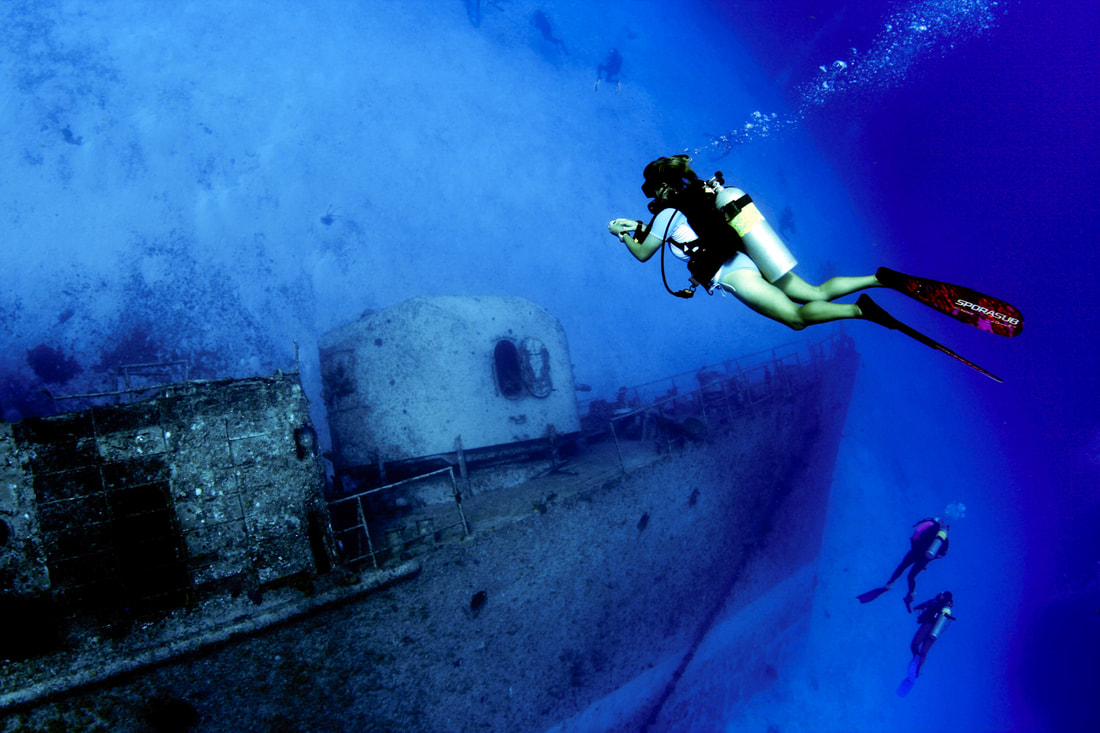
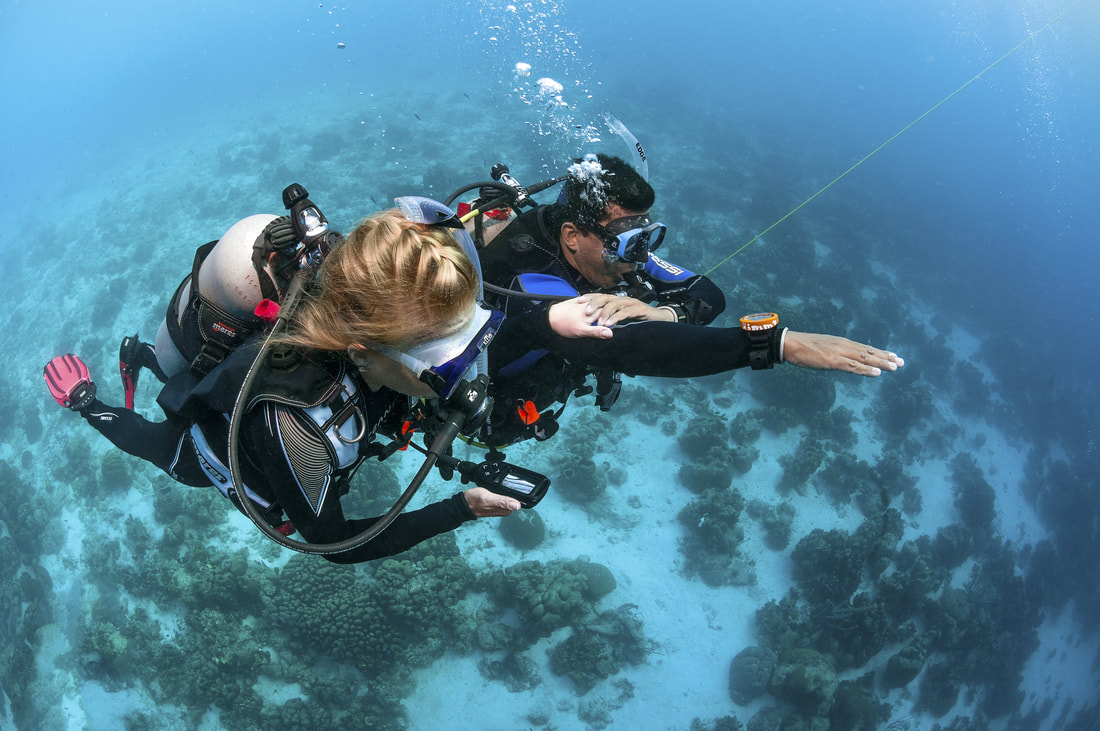
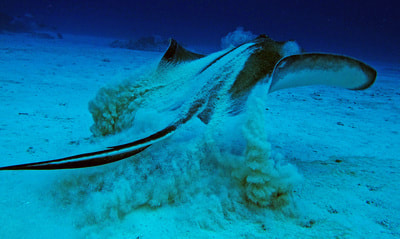
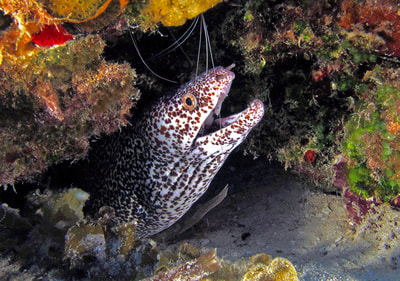
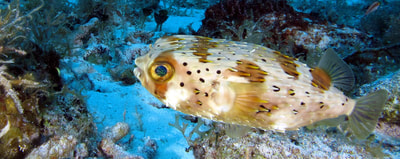
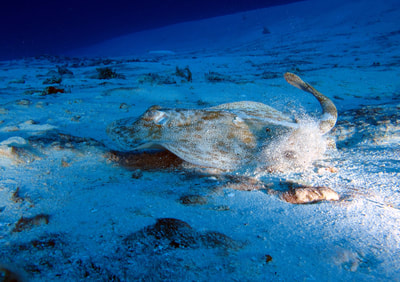
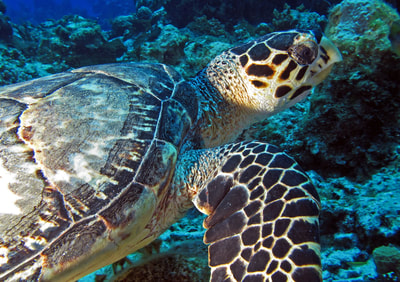
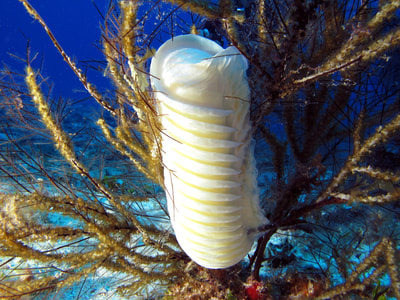
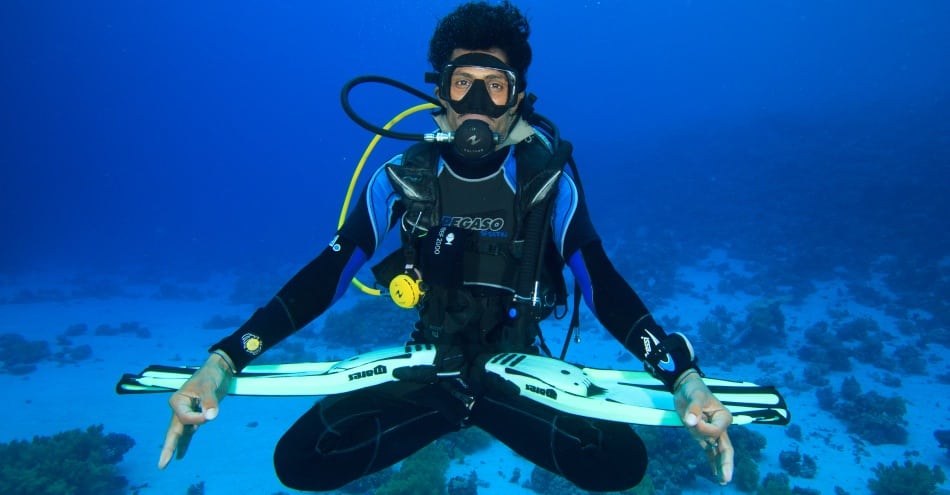
 RSS Feed
RSS Feed
